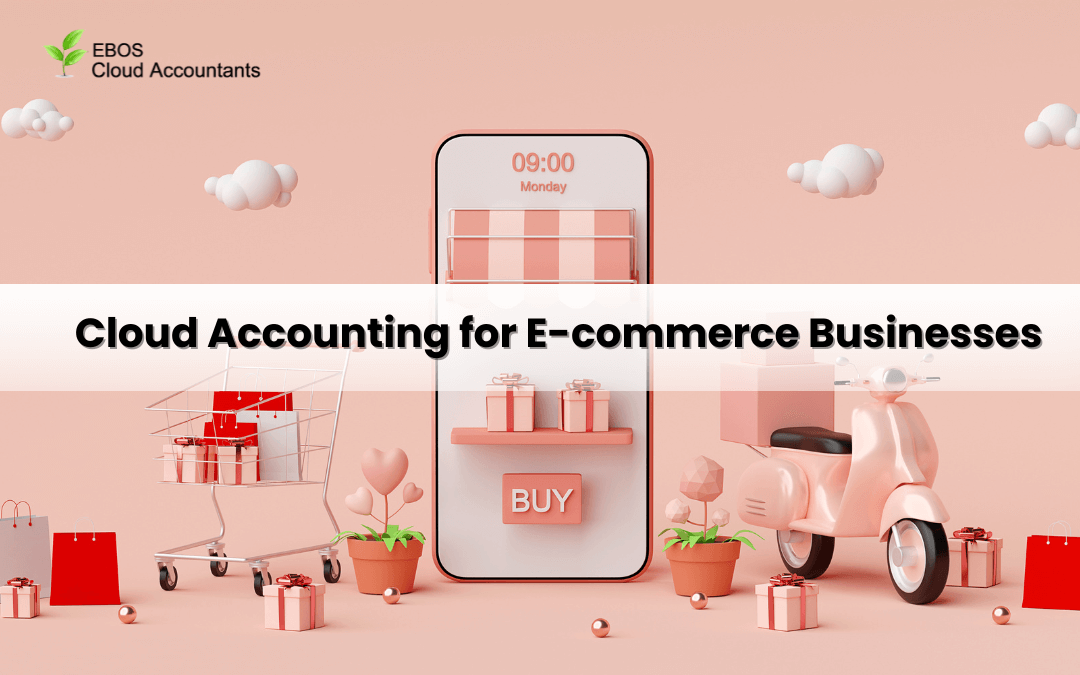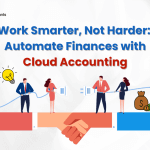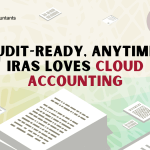In the rapidly changing digital marketplace, e-commerce companies face particular financial management issues. Traditional accounting systems can be inconvenient and inefficient for internet sellers who want real-time data and flexibility. Enter cloud accounting, a contemporary solution with tremendous benefits geared to the demands of e-commerce firms. This article looks at how cloud accounting may improve financial management for e-commerce businesses by increasing efficiency, accuracy, and scalability.
What is Cloud Accounting?
Cloud accounting is the use of internet software to manage financial transactions, records, and reports. Unlike traditional accounting software installed on a PC, cloud accounting solutions are hosted on remote servers, allowing users to view their financial data from anywhere via the internet. QuickBooks Online, Xero, and FreshBooks are among the most popular cloud accounting solutions.
Benefits of Cloud Accounting for E-commerce Businesses
- Real-Time Financial Insights: E-commerce companies work in a fast-paced world where immediate financial data is critical. Cloud accounting gives business owners real-time access to financial data, allowing them to track sales, costs, and cash flow instantaneously. This instant access enables better informed decision-making and timely responses to market developments.
- Integration with E-commerce Platforms: One of the most notable characteristics of cloud accounting software is its ability to effortlessly interact with prominent e-commerce platforms like Shopify, WooCommerce, and Amazon. These interfaces automate the synchronisation of sales data, inventory changes, and customer information, eliminating the need for human data entry and decreasing mistakes.
- Scalability: As e-commerce enterprises expand, their accounting requirements get increasingly complicated. Cloud accounting systems are extremely scalable, allowing for larger transaction volumes and more complex financial management requirements. Businesses may quickly update their plans and add new features as required, ensuring that their accounting system evolves alongside their company.
- Cost-Effectiveness: Cloud accounting removes the need for costly hardware installs, software upgrades, and IT upkeep. A subscription-based pricing model allows businesses to select a plan that matches their budget and only pay for the products they require. This adaptability makes cloud accounting a cheap choice for startups and small to medium-sized businesses.
- Enhanced Security: Data security is a critical responsibility for all businesses. Cloud accounting providers protect sensitive financial information with strong security methods such as encryption, frequent backups, and secure data centres. This degree of protection is frequently more sophisticated than what small firms can afford to adopt on their own.
- Improved Collaboration: Cloud accounting enables numerous users to view financial data concurrently from various places. This functionality is especially useful for e-commerce enterprises that use remote staff or outsourced accounting services. Improved cooperation guarantees that all stakeholders have access to the same current information, allowing for improved teamwork and communication.
- Automation of Routine Tasks: Cloud accounting software can help e-commerce enterprises automate many of their normal accounting procedures. Features like automatic invoicing, payment reminders, cost monitoring, and bank reconciliation save time and limit the possibility of human mistake. Automation gives business owners more time to focus on development and strategic planning.
Key Features to Look for in Cloud Accounting Software for E-commerce
When selecting a cloud accounting solution for an e-commerce business, consider the following features:
- Integration Capabilities: Ensure that the software is compatible with your e-commerce platform, payment gateways, and other critical tools like CRM and inventory management systems.
- Inventory Management: Look for tools that allow you to monitor inventory levels, manage stock, and automate reordering.
- Multi-Currency Support: If your company operates globally, multi-currency capability is critical for conducting transactions in several currencies and adhering to worldwide accounting rules.
- Comprehensive Reporting: Choose software that provides comprehensive reporting features, such as sales reports, profit and loss statements, balance sheets, and cash flow statements. Customisable reports can give insights that are specific to your company needs.
- Mobile Access: Mobile-friendly cloud accounting solutions allow you to manage your accounts while on the road, giving you greater flexibility and convenience.
- Customer Support: Reliable customer assistance is critical for resolving any difficulties or queries that may occur. Look for companies who give many support alternatives, such as chat, email, and phone assistance.
Conclusion
Cloud accounting is a game changer for e-commerce enterprises, providing several benefits that improve productivity, accuracy, and scalability. Cloud accounting frees up business owners’ time for growth and strategic decision-making by delivering real-time financial data, easy connectivity with e-commerce platforms, and automation of regular operations. As the digital marketplace evolves, embracing cloud accounting may provide e-commerce enterprises a competitive advantage by ensuring they are well-prepared to negotiate the complexity of contemporary financial management.
Contact EBOS Cloud Accountants today for assistance in determining which cloud accounting software is best for your business!







